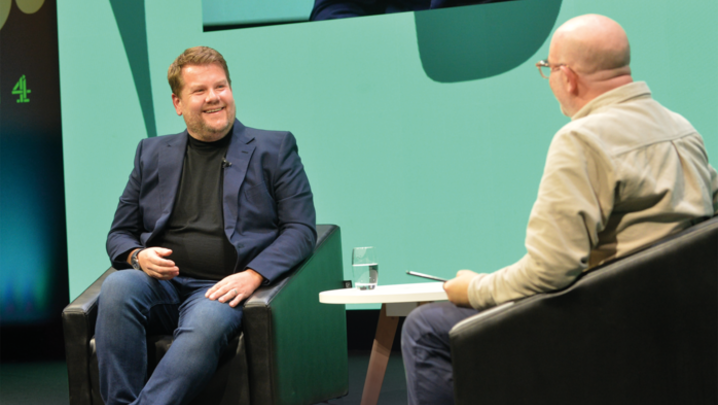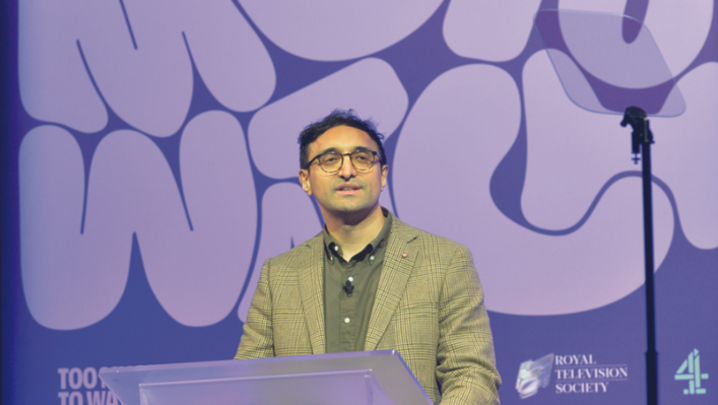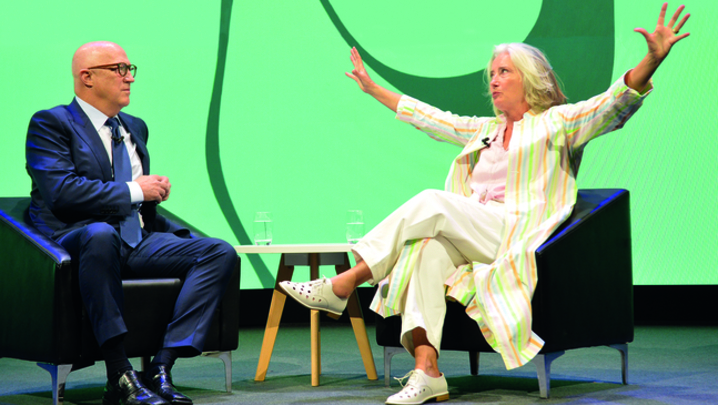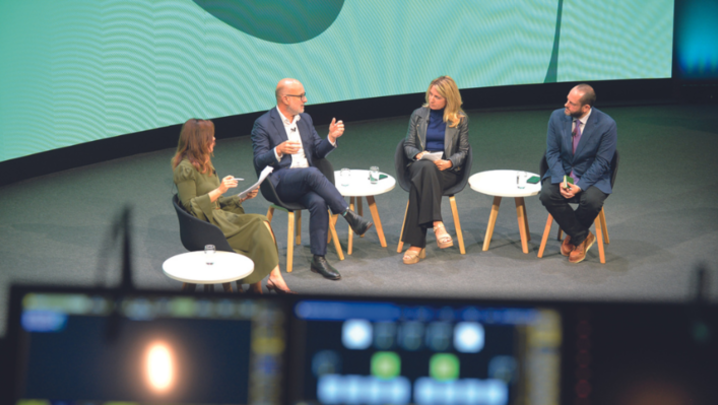Steve McQueen’s five films under the umbrella title of Small Axe are a television first. Shilpa Ganatra examines the project’s genesis
In 2010, Tracey Scoffield, co-founder of Turbine Studios and executive producer of the Emmy-winning movie The Gathering Storm, received an email that would change not only the course of her next 10 years, but the boundaries of television drama.
It was from Steve McQueen’s agent. At the time, the London-born director had just made a name for himself with his debut feature film, Hunger, the story of Bobby Sands and the IRA hunger strikes.
McQueen and the BBC were interested in creating a drama series depicting the experiences of first-generation West Indians living in London. “Their lifetimes were spent during an era of real struggle with authorities like the police, and also the system,” recalls Scoffield. “But this generation was starting to die without their stories having been told or recorded.”
So began Small Axe, a reference to a Bob Marley song based on an African proverb – “So if you are the big tree/We are the small axe/Ready to cut you down.” The films are about to air on BBC One as five standalone cinematic episodes, varying from just under an hour to just over two hours in length.
The five stories are: Mangrove, the story of the so-called Mangrove Nine, whose trial was the first judicial acknowledgement of behaviour motivated by racism in the Metropolitan police; Lovers Rock, a romantic drama set in unofficial blues clubs, where youngsters would go to dance the night away; Red, White and Blue, focusing on the trailblazing black policeman Leroy Logan; Alex Wheatle, the coming-of-age story of writer Alex Wheatle, and Education, highlighting racial segregation in our schools.
For McQueen, the 10 years between then and now, of course, weren’t solidly spent bringing these films to life: after Hunger, he went on to shake the film industry with movies such as Shame and triple-Oscar winner 12 Years a Slave, in the process earning an OBE, CBE and a knighthood. Meanwhile, Helen Bart, a former West Indian BBC News journalist was busy uncovering the stories of everyday people in the 1960s, ’70s and ’80s.
“She conducted some 126 interviews, which we then read, listened to and filtered to the point where, four years ago, we put together a writers room,” says Scoffield, Small Axe’s executive producer. “It was only at that point that it became clear that we were going to tell the true stories rather than creating fictional versions. Because, as Steve said, ‘You couldn’t make it up’.”
Working with co-writers Alastair Siddons and Courttia Newland, McQueen steered the scripts into shape. By accident more than design, the timing was impeccable. Filming was almost completed by the end of 2019, which meant that the spring lockdown had little impact on production.
The result is that McQueen’s first television work comes at the tail end of a year in which the Black Lives Matter movement has achieved new prominence. Mangrove, the series opener, is particularly prescient. With McQueen’s accessible, gripping storytelling technique, it depicts the same power imbalance between the police and the black community that led to the murder of George Floyd in May.
“For non-black audiences who want to educate themselves, it provides the stories to understand everything that’s been going on over the past year or so. For black audiences, it’s their story being told and what they’ve always known,” says Scoffield.
From the moment the project was conceived, McQueen was insistent that the events depicted in Small Axe would be recreated with painstaking accuracy. It helped that factual dramas are Scoffield’s field of expertise. Her credits include The Special Relationship, detailing the relationship between Tony Blair and Bill Clinton, and Muhammad Ali’s Greatest Fight, examining the background to the boxer’s refusal to join the US Army to fight in Vietnam.
“I’ve always felt that, if you’re telling a factual story, it should be as authentic as possible, because otherwise it has no value as a historical account,” she says. “We stuck closely with the Mangrove story, especially as much of it unfolded in the courtroom. Lover’s Rock is fiction, but based on authentic information about blues parties, which were a popular feature of that period. And we worked closely with Leroy Logan and Alex Wheatle on their episodes.”
Costume designer Sinéad Kidao, who worked on two of the five episodes, collaborated with Logan to track down his original tailor from the 1970s so that he could help with the outfits.
In an age in which audiences expect cinema-style production values in TV series, Small Axe’s high-end visuals are as much to do with McQueen’s way of working as they are with the project’s budget – though it helps that Amazon, which has licensed the film in the US, is a co-producer.
“We didn’t have a budget that was five times a feature film – it was a generous, high-end BBC One contribution,” says Scoffield. “Fortunately for us, Steve is a very, very fast director. He doesn’t go over time, and he knows exactly what he wants each shot to do, so he doesn’t mess around.”
To acknowledge the subject matter, great effort was made to hire BAME cast and crew. John Boyega (Star Wars, Detroit) and Letitia Wright (Black Panther, Avengers) lead the cast, and are two obvious choices who clearly prioritised this project. “How we got them was very simple: they wanted to work with Steve. Every actor wants to work with Steve. It was a combination of that, and the importance of these stories, which haven’t had the degree of exposure that they should have,” says Scoffield.
"For black audiences, it’s their story being told and what they’ve always known"
As for the crew, within the London-based production, BAME (mainly West Indian) representation reached 33%, which was a good effort, given the lack of available people.
“It was hard, as there aren’t enough people with those backgrounds working in the industry,” says Scoffield. “You just have to go the extra mile to find people, but we did.”
To alleviate the issue in the future, they appointed a BAME trainee in every department. This gave them the experience of contributing to a high-end TV drama, while also learning on the job. The diversity helped to deliver authentic perspectives on Small Axe. Cast your mind back to the 2017 Sky series Guerrilla, which similarly covered British race relations in the 1970s, but was accused of ignoring the role of black women in the struggle (the female lead was played by Freida Pinto). Yet, on Small Axe, black women play a pivotal role. Other demographics – such as white allies and the similarly victimised South Asian community – are represented sensitively.
“These are the first London-based films Steve has ever made and they’re very personal to him,” says Scoffield. “I think it’s one reason why he was always nervous about plunging in. He knew that he would have to wrestle with everything that was personal to him.
“But there is no one I’ve ever worked with who does the job as thoroughly and professionally. On top of that, he has a creative genius that most directors don’t have, in my experience.”
The end result is monumental television, which has built on McQueen’s forte of telling true stories with passion and quality, but also stretched the storytelling capabilities of television drama. With those safe hands and those rich stories, it was clear it was always going to be something special, even back when the first email dropped into Scoffield’s inbox a decade ago.
Small Axe runs on BBC One from 15 November.







